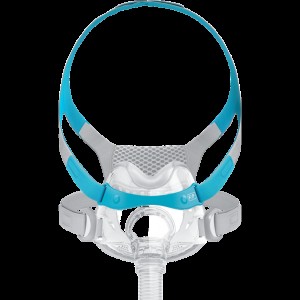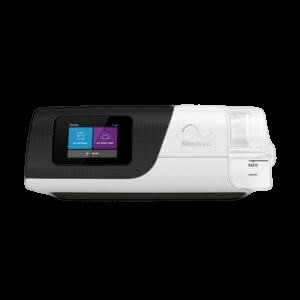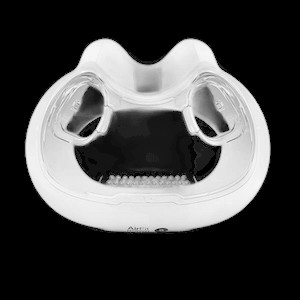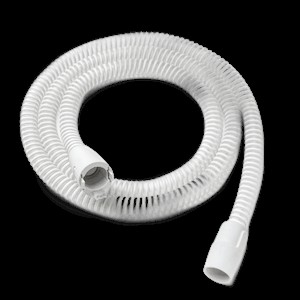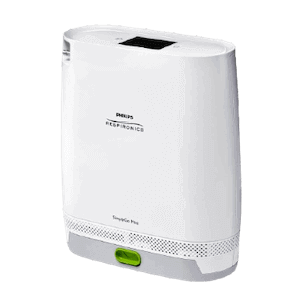Do I Have Sleep Apnea Signs Symptoms
If you are waking up at night and wondering "Do I have sleep apnea?" you are not alone. According to the National Sleep Foundation 18 Million American Adults have sleep apnea. More people are diagnosed each year and the public awareness has expanded. Still, what is sleep apnea? And "Do I have sleep apnea?"
What is Sleep Apnea?
Sleep Apnea is, in the simplest terms, a sleep disorder where the patient has trouble breathing. Sleep Apnea is simply a broader term for two disorders:
- Obstructive Sleep Apnea: This is the most common type of sleep apnea. "Obstructive" simply means that there is a blockage of the airway during sleep. This can be a fatty skin tissue along the throat, the tongue rolling in to place, etc. On our site, Manual or Auto CPAPs can treat this disorder.
- Central Sleep Apnea: This type is a much more serious type of sleep apnea. Central Sleep Apnea means that, instead of a blockage, your brain does not tell your lunges to breathe at night. Neurological in nature, this is more rare than Obstructive Sleep Apnea. A BiPAP ST/AVAPS (sometimes called BiLevel or BiPAP) machine is required for treatment and will range from the simple to the most complex of machines.
Now that we understand sleep apnea we can begin to answer the question of "Do I have sleep apnea."
Symptoms & Complications
Common symptoms include fatigue in the daytime, lack of breath during sleep, and the oh so infamous snoring! Still, there are other less common symptoms you may be unaware of. For example, women are far less likely to snore with sleep apnea than men, however their partners can sometimes detect when they have lapses in their breathing at night. Men may also experience themselves stop breathing at night. Symptoms can be physical like dry throat in the morning, headaches or weight gain, or they may be less obvious like depression and mood swings. Sleep apnea can also co-exist with a host of other problems such as high blood pressure. Obstructive sleep apnea is sometimes also brought on by weight gain.
Early Signs I have Sleep Apnea & How to Tell
Sleep apnea can only be diagnosed by a trained professional such as a doctor or dentist. However, there are a few things you can do, and look for, to give yourself a sort of pre-diagnosis. Again, I must stress these will NOT confirm that you have sleep apnea. Only a sleep study can truly confirm that you have sleep apnea. For this same reason, by law, you are required to get one before purchasing a CPAP machine within the United States. However, the following can give you an idea if you should seek out a sleep study in the first place.
- Look at your FitBit Readings: Smart devices that monitor your health, like a FitBit, are a great way to alert us when we are not getting the sleep we need. They can monitor how much true sleep you are getting and record the time during the night actual spent in restful sleep. The National Sleep Foundation recommends 7 to 9 hours of sleep in adults age 18-65 and 7 to 8 hours for adults over 65. They state anything under 6 hours is unhealthy. If you notice that your smart device is sensing that you are consistently not getting the right amount of sleep you should begin the next step of consulting a professional.
- Install a Sleep Monitoring App: They really do have an App for that; Several in fact! What these Apps do is use your phone's microphone to record you while you sleep. The program will then monitor for any snoring, restlessness, or disruptions in your sleep. When you wake up your data will show you how long you slept and explain any disruptions you had overnight. These Apps aren't infallible, but if you notice several nights of unrest it may be time to talk to your doctor.
- Learn to Read your Body: Not everything has to be super high tech! Simply slowing down and reading your own signs and symptoms can give you enough information to determine if you should see your doctor. Have you been irritable? Snoring? Fatigued through the day? Can anything account for this like too much coffee or Netflix before bedtime? A simple journal of when you wake up, when you go to bed and how restful your sleep was can tell you a lot about your quality of rest. If you are consistently getting the recommended amount of sleep but are still exhausted, it may be time for an in-depth sleep study.
- Talk to your Spouse/Partner: Your loved one can be indispensable in alerting you if there is a problem! Are you constantly told you snore too loud? Have they noticed you not breathing at night? These are both signs that you might have sleep apnea. Even if your significant other isn't all that observative you can ask them to pay attention to how you are when you are asleep. If they tell you that something is not right it is time to see your doctor.
Risk Factors
- High Blood Pressure and Heart Related Issues: High blood pressure, arrhythmia, stroke, and heart failure are well documented to have links to sleep apnea. They often can feed into each other causing each problem to get worse. You can check out RespShop's article here on how sleep apnea effects your heart's health.
- Having a BMI Over 35: It is sad to say but our doctor's do not tell us to lose weight just for laughs. Of the multitude of health problems aggravated by being overweight, sleep apnea is one of them. Having a BMI over 35 is a risk factor related to sleep apnea.
- Your Age is Over 50: Yet another reminder that you are not a spring chicken is that your risk of sleep apnea increases after the age of 50. This is because your skin is not as elastic as in your youth and our muscles aren't as strong. Because of this, blockages can occur when we sleep in our airway.
- Your Neck Circumference is More than 16 Inches: Those extra inches can add up. This also can factor into a blockage in the airway which will cause snoring and less air to enter your lungs.
Do I Have Sleep Apnea?
So now that you know what sleep apnea is and know what to look for let's move onto the main question: "Do I have sleep apnea?" If you are still with us, you probably already have your suspicions. However, if you are still unsure we have created a chart below to help you determine if you do. Now, alone these symptoms could mean anything but, if three or more of these symptoms occur it is well worth speaking to your doctor or sleep specialist to set up either an in-home or in-Lab sleep study. (To see the pros and cons of both types of studies click here.)
| Symptom | X (No) | ✓ (Yes) |
|---|---|---|
| Am I commonly tired throughout the day, despite following the recommended hours of sleep? | ||
| Do I have trouble falling/ staying asleep? | ||
| Do I often wake up with nightmares? | ||
| Am I told by my spouse/ partner frequently that I snore? | ||
| Do I stop breathing at night? | ||
| Am I breathing through my mouth at night? | ||
| Do I wake up with my mouth feeling dry? | ||
| Do I wake up with my throat feeling dry? | ||
| Do I breathe loudly? | ||
| Have I had signs of depression? | ||
| Am I feeling frequently fatigued? | ||
| Do I frequently have headaches? | ||
| Am I frequently irritable? | ||
| Does my mood change frequently? | ||
| Have I gained weight? |
I Think I Have Sleep Apnea, Now What?
Now it is time to talk to your doctor. Keep a list of all the symptoms you are experiencing and discuss options with your doctor. Being open and honest will benefit you in the end. If your doctor agrees that your symptoms are in line with a diagnosis of sleep apnea they will likely proscribe a sleep study for you. From there they can monitor your symptoms and give you a definite yes or no.
So, what about sleep studies? Click here to learn about the two different kinds you can have!
